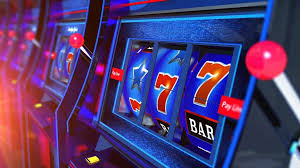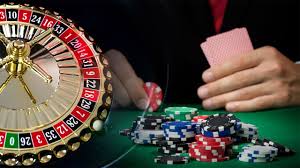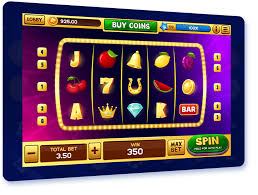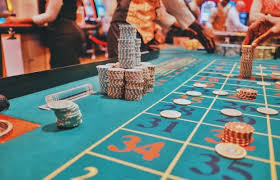
Slot machines are among the most popular games in casinos, both in brick-and-mortar establishments and online platforms. With their flashing lights, exciting themes, and the chance to win big, it’s no wonder players are drawn to these games. But for many, there’s one key question: What are the odds of winning, and how do payout percentages work?
In this blog, we’ll explore slot machine payout percentages, explain what they mean, and guide you on what to expect when playing these games. Whether you’re a seasoned slot enthusiast or a newcomer, understanding payout percentages can enhance your experience and help you make more informed decisions when playing.
What Are Slot Machine Payout Percentages?
The payout percentage, also known as Return to Player (RTP), refers to the amount of money a slot machine is programmed to pay back to players over time. For example, if a slot machine has a payout percentage of 95%, it means that, theoretically, the machine will pay out $95 for every $100 wagered in the long run.
However, it’s essential to note that the RTP is calculated over millions of spins, meaning it’s not a guarantee for individual players. In the short term, anything can happen—wins, losses, or breaks even—based on randomness and luck. The payout percentage is simply an average based on how the game has performed over many spins.
How Is the Payout Percentage Determined?
The payout percentage of a slot machine is programmed by the casino or the game developer during the design and testing phase. It’s determined through a combination of the machine’s mechanics, the randomness of outcomes, and the game’s paytable, which specifies the potential payouts for each combination of symbols.
Factors that influence RTP include:
- Number of Reels and Paylines: A slot machine with more reels and paylines typically has more complex payout structures, which can impact the RTP. Slots with 3 reels may have a different payout percentage compared to 5-reel games.
- Bonus Features: Many modern slots come with bonus features, free spins, or special symbols like wilds and scatters. These added features can increase the RTP by offering additional chances to win.
- Volatility: The volatility of a slot machine refers to how often and how much the machine pays out. High-volatility slots may have higher payouts, but they tend to pay out less frequently. Low-volatility slots offer smaller but more frequent wins, and their RTP may be more stable over time.
What to Expect from Slot Machine Payout Percentages
The payout percentage for slot machines can vary widely, depending on the game and the casino. While some slots have a low RTP (around 85% to 90%), others can offer much higher returns, even reaching 98% or more. Here’s what to expect:
- Land-Based Slots (Casino Slots)
- The RTP for slot machines in physical casinos typically ranges from 85% to 95%. However, some high-end or progressive jackpot machines can offer slightly higher percentages.
- It’s important to remember that payout percentages for land-based slots may vary from one casino to another, as they are often set by the casino operators. Some jurisdictions have regulations to ensure a minimum RTP, but this can still differ by region.
- Online Slot Machines
- Online slots often offer higher RTPs compared to land-based machines, with many games having an RTP range of 92% to 98%. This is due to the lower operational costs of online casinos, which allows them to offer better returns to players.
- Progressive jackpot slots, which accumulate large prize pools over time, tend to have lower RTPs (around 85% to 90%) due to the potential for much larger payouts.
How Payout Percentages Affect Your Chances of Winning
Understanding payout percentages can help set expectations when playing slots. Here’s how these percentages can impact your gaming experience:
- Higher RTP = Better Long-Term Payouts: A slot machine with a higher RTP generally means better returns in the long run. While you won’t necessarily win every time, games with higher payout percentages are more likely to give back a larger portion of the money wagered, making them better for players looking for better value.
- Lower RTP = Less Frequent Wins: Slots with lower RTPs tend to be more volatile, meaning they may have longer losing streaks but can potentially offer bigger payouts when they do hit. While the odds aren’t in your favor over time, some players enjoy the thrill of the occasional big win.
- Progressive Jackpot Slots: These games have lower RTPs because a portion of each bet goes toward funding the jackpot prize. While the potential for a massive payout is enticing, players should be aware that the odds of winning the jackpot are extremely slim.
How to Find Slot Machines with Higher Payout Percentages
If you’re looking to maximize your chances of winning, consider these tips when choosing which slot machine to play:
- Check the RTP Information: Many online casinos will display the RTP for each slot game on the game page. Look for slots with RTPs in the 95% to 98% range for better value.
- Look for Low Volatility Slots: If you prefer steady wins, low-volatility slots are a good choice. These games often have a higher RTP and provide smaller, more frequent payouts.
- Consider Your Budget: Slot machines with higher RTPs may have a higher minimum bet, which might not be suitable for all players. Choose games that match your budget while still offering a decent RTP.
- Understand the Game’s Features: Some slot machines have additional features like free spins, multipliers, or bonus rounds, which can increase your chances of winning. These features can impact the game’s overall RTP, so consider them when selecting a game.
Conclusion
Slot machine payout percentages are an essential aspect of the gaming experience, helping to determine the potential returns you can expect from a game. By understanding how RTP works and what to look for when choosing a slot machine, you can make more informed decisions and improve your overall gaming strategy.
While luck will always play a significant role in slot games, knowing the payout percentages can give you a better sense of which games offer the best chances for a rewarding experience. Remember, there’s no such thing as a “guaranteed win,” but choosing the right slots can enhance your enjoyment and maximize your chances of walking away with a smile!



